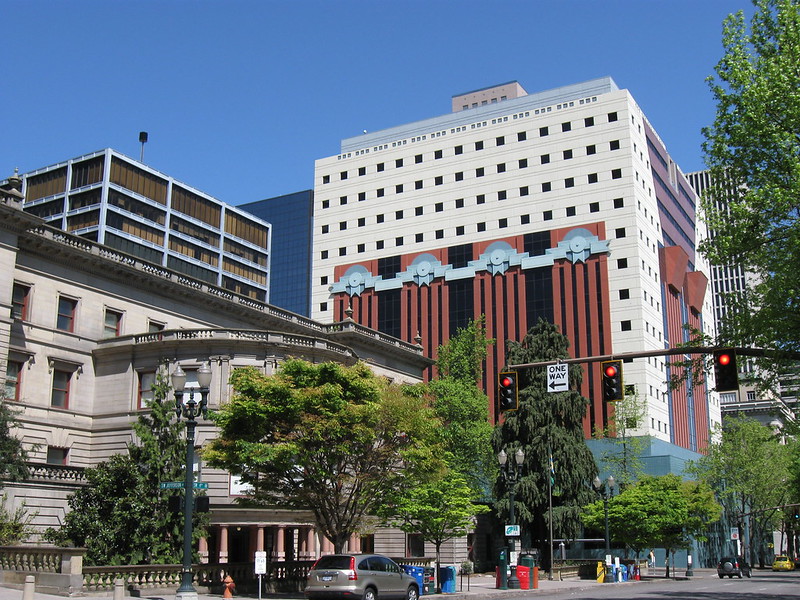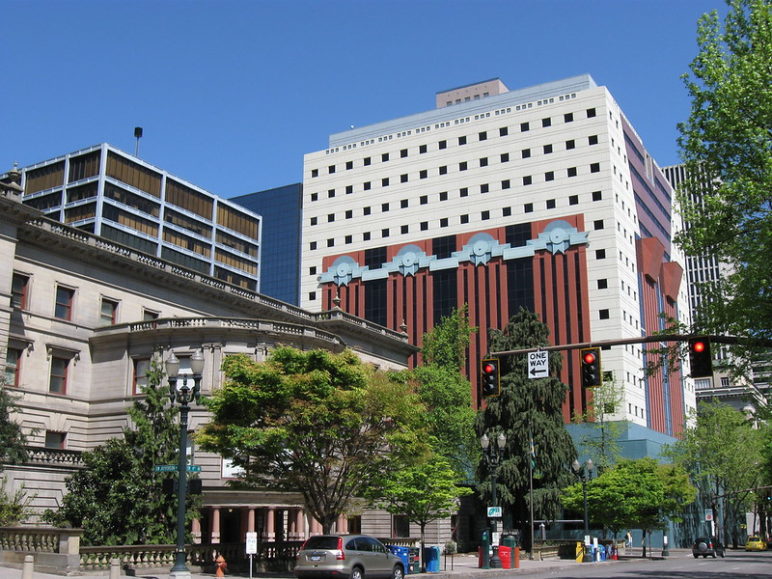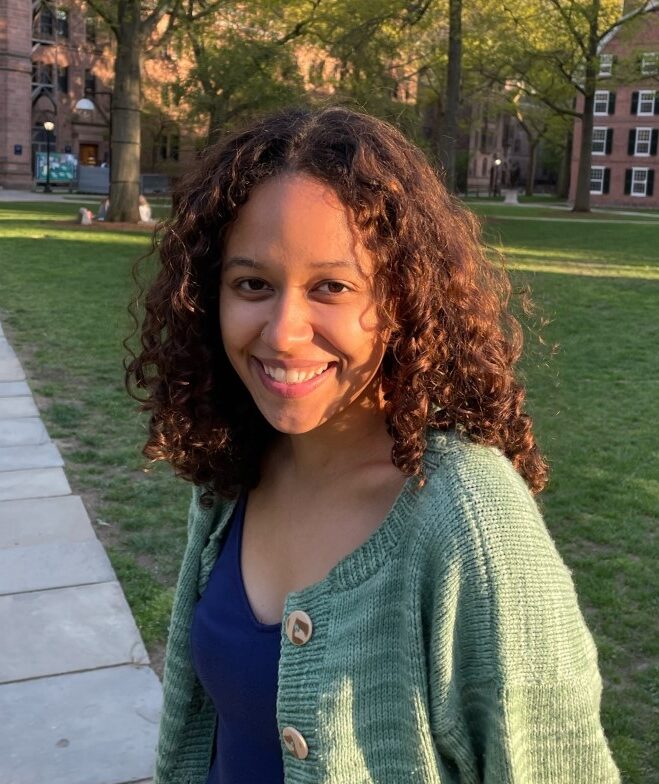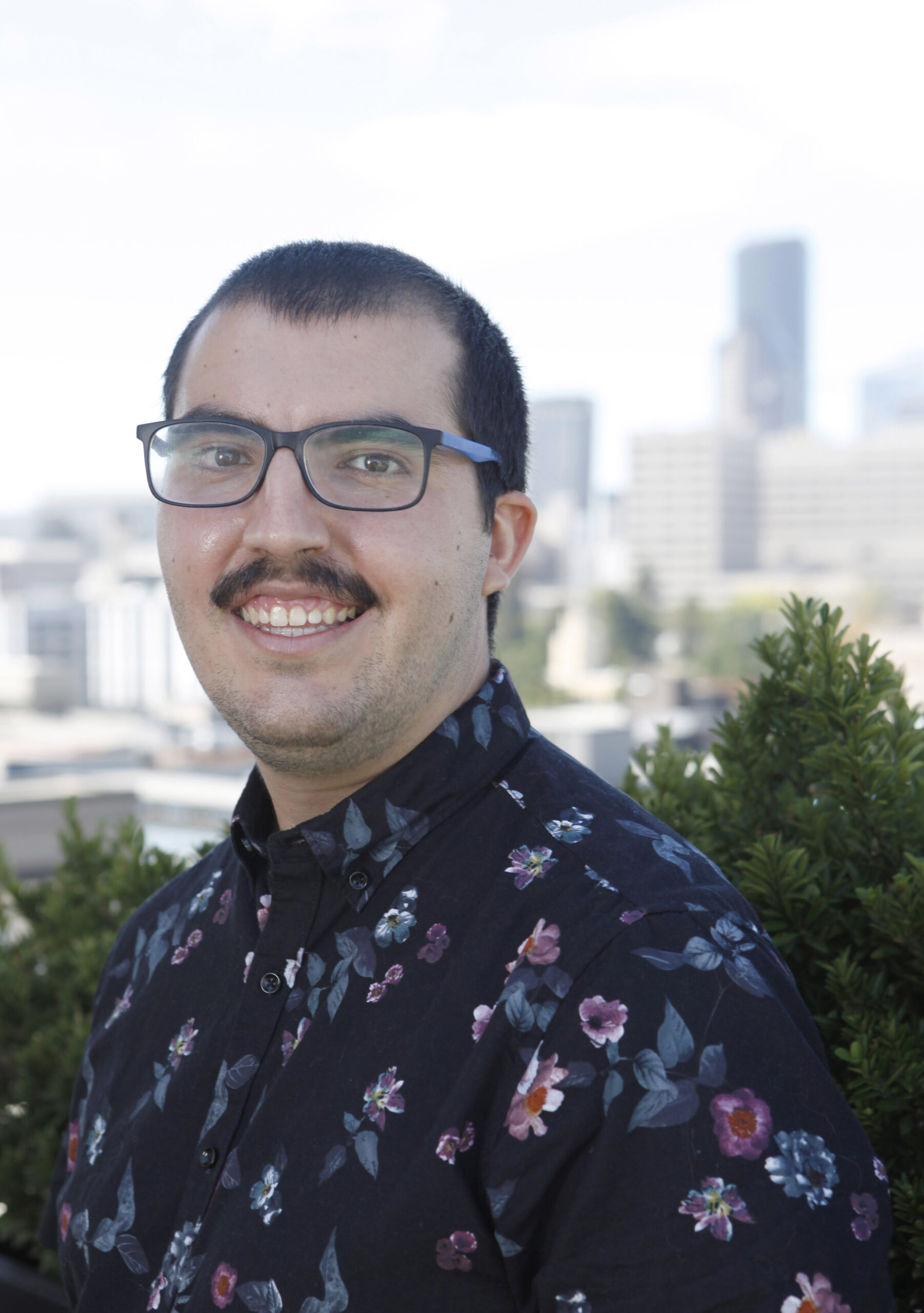Portlanders will soon find ballots for the November general election in their mailboxes. One important question they’ll see is ballot measure 26-228, which if voters approve it, will furnish a major upgrade to Portland’s form of government and elections as defined in the city charter. This measure would do three main things if approved by voters:
- Allow voters to use ranked choice voting to select their candidates of choice;
- Expand the City Council from 5 to 12 members by creating four geographic districts with three representatives each; and
- Replace the commission form of government with a system where a city administrator runs city bureaus, allowing commissioners to focus on their legislative responsibilities.
Sightline’s democracy team has been researching election systems for over a decade, and opportunities for Portland specifically for the last several years, including following the work of the Charter Commission. Below we answer the questions we’ve heard most frequently from voters and others following the issue.
Background information about the City Charter
- What is the Portland City Charter?
- How do we change the Charter?
- What is the Charter Commission?
- What can the Charter Commission do?
- How can I get involved with the Charter Commission?
- Why propose changes to the Charter now?
A new system of voting
- What is Portland’s current voting system?
- What are the proposed changes to Portland’s system of voting?
- What does “proportional representation” really mean and what are its benefits?
- How does ranked choice voting work?
- Why 25 percent?
Expanding City Council
- Why does the measure propose geographic districts with three city council members to represent each district?
- Why expand the city council from 5 to 12 members?
A new form of municipal government
- What is Portland’s current form of government?
- What powers does the mayor currently have, and what would change if this measure passes?
- What would be the role of the city administrator in the new government system?
Implementation and transition
Basics of the City Charter
What is the Portland City Charter?
The Portland City Charter is the city’s governing document, which defines the legal foundation of the city government. City charters are like local constitutions and can prescribe things like the powers and responsibilities of the government, the organization and election of city officials, rules for utilities and public contracts, and the process for revising the charter itself. Oregon is a home rule state, meaning its cities and counties have lots of room to govern themselves within the boundaries of state and federal law.
How do we change the Charter?
Charter amendments can’t happen without the approval of Portland voters. Amendments can be initiated by the people through signature-gathering, recommended by City Council, or recommended by the Charter Commission.
In November, voters will see this question on their ballot: “Should Administrator manage city government, 12-member Council (three from each district) make laws, voters elect officials using ranked choice process?” If enough voters say yes, these changes to Portland’s government structure and voting system will be codified in the Charter.
What is the Charter Commission?
The Charter Commission is a volunteer body of 20 Portlanders tasked with reviewing the City Charter and recommending changes. Since 2007, the Charter has required the City Council to appoint a Charter Commission at least every 10 years. The Charter Commission has included small business owners, union representatives, disability and racial justice advocates, nonprofit directors, legal experts, and others from across the city.
What can the Charter Commission do?
The Charter Commission can recommend amendments to the people, who must approve all changes to the Charter. If 15 or more of the 20 Commissioners support an amendment, it goes directly to the ballot for Portlanders to vote on, such as in the case of the provisions in ballot measure 26-228. If a majority of Commissioners (but fewer than 15) support an amendment, it goes to City Council as a recommendation. City Council can then place it on the ballot if they choose to do so.
How can I get involved with the Charter Commission?
While the changes on the ballot this November are already set for voters, the Charter Commission is still working on additional amendments. Phase II of its work is focused on environmental justice, the expansion of voting rights, and proposals from city government departments. Public input for Phase II amendments is ongoing, with various opportunities for engagement.
If more than 15 Commissioners support Phase II amendments, then Portlanders will be able to vote on these changes in the next primary or general election, which will occur in May or November of 2024. However, the amendments could also go to City Council, in which case the timeline is much less certain.
Why propose changes to the Charter now?
The last Charter Commission met ten years ago, so the schedule required a new Charter Commission to start in 2020.
Polls show many Portlanders believe the current form of government is not serving residents well. According to The Oregonian, “a growing chorus of politicians, business leaders, and civic activists have called for reshaping Portland’s commission form of government that voters enacted in 1913, as they believe it hampers the city’s ability to respond to challenges it faces.” In the last few years, groups like the City Club of Portland, League of Women Voters of Portland, and Sightline Institute have been proposing changes to the city’s government and election systems that would improve representation for all Portlanders. Ballot measure 26-228 aims to address these issues by reforming Portland’s government and elections to be more representative, effective, and responsive to constituents’ concerns.
A new system of voting
What is Portland’s current voting system?
Portland has six elected offices (the mayor, four commissioners, and the auditor) that are all chosen at large, which means they are elected by Portland voters across the entire city, regardless of geographic area. The City Council comprises the mayor and the four Commissioners. Elected officials serve four-year terms, and elections are staggered between presidential and midterm years to avoid a complete change of elected officials in a single year.
Currently, Portland voters cast one vote among the candidates for each elected office. If a candidate receives more than 50 percent of votes in the May primary, they are immediately elected without a general election. If no candidate reaches 50 percent, the top two candidates compete in the November general election. In other words, Portland has a plurality (also called winner-take-all), at-large voting system.
What are the proposed changes to Portland’s system of voting?
Instead of plurality voting, where voters only vote for one candidate and the candidate with the most votes wins, the measure proposes a different option: ranked choice voting. Voters will be able to rank multiple candidates in order of their preference. Ranked choice voting in the general election would replace Portland’s primary election, which typically has dismally low turnout and a less diverse electorate. Ranked choice voting has also been noted to increase voter turnout, diversify the candidate pool, and more accurately represent voters’ choice.
Voters would use single-winner ranked choice voting to elect the mayor and auditor. Voters would rank their candidates, and whichever candidate received more than 50 percent of first-preference votes would win. If no candidate received a majority of votes, the candidate that received the fewest votes would be eliminated and their votes redistributed to voters’ next-choice candidates. This process continues until one candidate is elected with over 50 percent of the votes. Voters would use multi-winner ranked choice voting to elect three city council members from each of four districts, meaning instead of electing 4 commissioners, Portlanders would elect 12. Portland voters would still rank their candidates in order of preference, and the top three candidates would win their district’s three seats. This is a form of proportional representation, the most common type of election worldwide.
What does “proportional representation” really mean and what are its benefits?
Proportional electoral systems are the most common forms of elections worldwide. Proportional representation aims to provide accurate political representation of the electorate in the legislature. Instead of having one candidate or party representing the entire electorate because they got the most votes, different blocs of voters are able to get a voice at the table by gaining seats based on their percentage of the vote.
Supporters of proportional representation say it offers communities that have traditionally lacked a seat at City Hall a greater voice. Unlike majority or plurality systems that overrepresent large factions, proportional representation helps bolster political minority groups. In addition to increased representation for marginalized groups, proportional representation also has the potential to significantly reduce campaign costs, since candidates running in multi-winner elections and in geographic districts rather than city-wide can focus their campaigns more narrowly. With less time focused on fundraising, candidates can better engage with voters and share their values.
How does ranked choice voting work?
In a single-winner ranked choice voting system, like Portland would use for the mayor and city auditor, voters rank candidates in order of preference. If a candidate earns a majority of first-place votes, they win. If no candidate receives over 50 percent of the votes in the first round, the candidate with the fewest votes would be eliminated and those votes are transferred to each voter’s next-highest ranked candidate for the next round of counting. The process continues until a candidate crosses the 50 percent threshold.
For multi-winner ranked choice voting, like Portland would use for city council seats, candidates win when they exceed a threshold set by the number of available positions. With three candidates, each candidate must receive more than 25 percent of the vote to gain a seat. Ballots are counted in rounds, just like the single-winner version. If one candidate gets more than 25 percent of the vote, they win a seat, and the votes above the threshold are proportionally transferred to other candidates based on voters’ preference. The candidate with the fewest votes is eliminated each round, with all of their votes transferred to other candidates in the same manner. This process continues until all positions are filled.
Here’s a short video that explains this process.
Why 25 percent?
Because mathematically, only three candidates can get more than 25 percent of the vote. This is the number you need to have a three-winner ranked choice election. It’s just like how in a single-winner race, the threshold to win is 50 percent because only one candidate can get more than 50 percent of the vote. (This method is called the Droop quota.)
Expanding City Council
Why does the measure propose geographic districts with three city council members each?
Expanding the number of councilors means more points of access for Portlanders to voice their needs to the city. Representatives from specific geographic districts would also mean increased accountability for local problems and the opportunity for residents to elect a candidate from their community. Electing multiple members in each district allows representation for groups that are not geographically concentrated and who have been historically excluded from council, including women, people of color, renters, young people, and working-class Portlanders.
Why expand the city council from 5 to 12 members?
Not only does a larger council mean more capacity for direct engagement with voters, but the growth of the City Council is also long overdue. Over the past 100 years, Portland’s population has grown more than threefold, but the size of its City Council has remained at five people (including the mayor). For comparison, the similarly sized cities of Denver and Boston each have 13 council members.
A new form of municipal government
What is Portland’s current form of government?
Portland is the last major US city and the only Oregon city to use the commission form of government. This style of government, also dubbed the Galveston Plan, was first implemented in Galveston, Texas, after a hurricane devastated the town in 1900. Faced with an emergency situation, citizens lobbied for a more centralized, efficient governing body to deal with the devastation, and the commission was born.
Portland’s six elected officials are the Mayor, four Commissioners, and the Auditor. The Mayor and the Commissioners together make up the City Council. Under the commission form, commissioners have both legislative and executive powers, meaning they act not only as lawmakers but also as heads of specific bureaus (such as fire, police, health, or public works departments).
Ballot measure 26-228 aims to address the unique challenges that come with city commissions by reforming the city’s government. Currently, commissioners’ dual responsibility of passing laws and heading bureaus has led to conflicts of interest and coordination problems caused by political disagreements. Additionally, the commissioners don’t always have the expertise necessary for running the bureaus they are assigned to, and are sometimes reassigned to lead different bureaus, making it hard for voters to hold them accountable based on management performance.
The City Club of Portland and League of Women Voters of Portland published reports covering these issues in more detail.
What powers does the mayor currently have, and what would change if this measure passes?
The mayor currently serves as chairperson of the council, votes as a member of the council, and determines department and bureau assignments. You can read more about the other powers of the mayor as outlined in the current city charter here.
If Ballot Measure 26-228 passes, the mayor would no longer serve or regularly vote on city council. However, they could still introduce laws and break tie votes on non-emergency ordinances. Instead, the mayor’s main job would be supervising government bureaus with the appointed city administrator.
What would be the role of the city administrator in the new government system?
Moving Portland away from the commission form of government means that city councilors would no longer be directly involved in running city bureaus. Instead, the mayor and an appointed city administrator would take over this role. The city administrator would be hired by the mayor and confirmed by City Council, and would be tasked with managing city bureaus and implementing the laws approved by City Council.
The redelegation of such responsibilities is meant to ensure the effective administration of city bureaus by reducing barriers to cross-bureau collaborations and making sure that bureau directors no longer have to face direct political pressures.
Implementation and transition
How much would this cost?
The City Budget Office estimates that the cost of implementing the measure is about $900,000 to $8.7 million annually, which translates to 0.1% to 1.4% of Portland’s discretionary funding. Discretionary funds are approximately 10% of the overall city budget. (This wide range results from a sort of Kia-to-Cadillac range of scenarios that the City Budget Office is required to provide for any ballot measure with a fiscal component. For a breakdown of cost estimates, see this Charter Commission presentation from October 3, 2022.)
This budget estimate does not include any savings that the measure could create, including running one election instead of two for many positions, improving bureau functions, and potentially reducing councilors’ staff sizes.
What is the timeline for implementation?
If voters approve ballot measure 26-228 in November, the implementation process begins immediately.
A district commission, tasked with determining the city’s four new council districts, would be seated by January 31, 2023, with a deadline of September 2023 to adopt a district map. An independent salary commission would also be appointed in January 2023 to determine the compensation for Portland’s mayor and councilors under the new system.
By the November 2024 election, voters would be using ranked choice voting to choose their representatives. And once all the votes were counted, the newly elected mayor, auditor, and council members would begin their roles in January 2025. The mayor would then hire a city administrator, who would require confirmation by the City Council.
Still have questions? You can also refer to this FAQ on the City of Portland’s website.











Kirke Wolfe
The video on how ranked choice voting works with multiple candidates was useful, but asserted without explanation that if a candidate receives at least 25% of the votes, it is mathematically impossible for him/her to lose. With my degree in mathematics and plenty of spare time, I might be able to figure out how this is so, but it would be a big help to have this explained, especially since that 25% has been a central objection raised by critics of this procedure.
Jay Lee
Thanks for raising the question, Kirke! I’ll add this to the FAQ.
In a three-winner ranked choice race, 25 percent (plus one vote) is the threshold needed to get elected. This identifies the top three candidates because, mathematically, only three people can surpass 25 percent. The fourth-place candidate would max out just under 25 percent, falling below the threshold.
In a one-winner race, the analogous threshold is 50 percent plus one vote. Only one candidate can get over 50 percent, so that candidate is the winner.
For any number of winners, the threshold is 100 percent divided by one more than the number of winners. 50 percent for one, 33 percent for 2, 25 percent for 3, 20 percent for 4, etc. This method for determining a threshold is called the Droop quota, the most common method for multi-winner ranked choice elections.